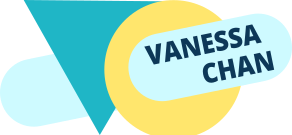Last week, students in LIBR 509 met with undergraduate students in the informatics minor to "advise them on their metadata and description plans for their term projects" (course announcement, ). Myself and two of my classmates spoke with two INFO 301 students to discuss their digital counter-tour; we asked them to consider ways they wanted information to be presented and how expected users might navigate the platform they were going to build.
Although we did suggest particular things to consider for their term project and built on their existing knowledge of content standards, we mostly framed our guidance in the form of questions. Some questions I asked included:
- Will these stories be sorted regionally, or by when they were published?
- Making stories from other cultures a "see also" link seems to go against your goal of de-centering Western stories--what if you flipped it the other way around (i.e., make the Western stories the "see also" ones)?
- If I were someone who found your website and wanted to share a specific story with a friend, how would I tell them to find that story?
Some of my suggestions they considered incorporating included:
- Attributing written versions to their authors, where findable, regardless of public domain status;
- Having categories based on what is not in the Western story; and
- Having a section in their mission statement outlining why they weren't including certain metadata fields found in their source database.
Overall, this was an interesting experience that asked me to draw on what I have been learning about content standards and user-centered design in both LIBR 509 and the general MLIS core. I also drew on my experiences as an undergraduate peer mentor, which helped me to feel at home creating guiding questions.

I have always found that I learn better by teaching and sharing knowledge. This activity connects back to the work we've been doing in class related to creating and assessing content standards, and expressing these ideas to someone else helped solidify what I did and did not understand in the class material.
Consulting these undergraduate students was very valuable to me because it felt like connecting back to the core of why I want to work as an information professional: to help others find what they need, and to help connect them to the ideas that will help them flourish in their own work.